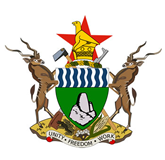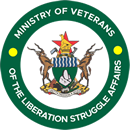Provincial Field Officers (PFOs)
In line with the Government’s Devolution Agenda, the Ministry of Veterans of the Liberation Struggle Affairs has offices in the country’s ten provinces and their respective districts, headed by Provincial Field Officers (PFOs) at Provincial level and District Field Officers (DFOs) at District level.
The following are the duties responsibilities of the Provincial Field Officers and District Field Officers:
Ministry of Veterans of the Liberation Struggle
Dual Reporting: Provincial Minister of State & National Ministry Headquarters
Mission of the Role:
To serve as the primary ambassador, advocate, and operational lifeline for our nation’s Veterans of the Liberation Struggle (VLS). This role is the vital bridge between national policy and the lived reality of our veterans, ensuring they receive the dignity, support, and recognition they have earned. The Field Officer operates with a high degree of mobility and autonomy, bringing the Ministry’s services directly to the community and upholding the sacred covenant between the nation and its heroes.
Core Duties & Responsibilities
. Veteran-Centric Service Delivery & Compassionate Support:
- Serve as the first point of contact for veterans and their families, processing and disbursing critical financial assistance for medical and funeral expenses with empathy and efficiency.
- Conduct proactive follow-up engagements with clients post-payment to ensure support was effective and to foster a relationship of continuous care and trust.
- Expertly receive and preliminarily assess (PD2) Forms, ensuring completeness before secure forwarding to Headquarters for processing.
- Process applications for educational assistance, funeral assistance and empowering a new generation through the legacy of their forebears.
2. Project Facilitation, Monitoring & Economic Empowerment:
- Provide expert, insightful guidance to veterans on identifying viable and sustainable community projects that align with their skills and national development goals.
- Conduct regular field visits to monitor and evaluate the progress and impact of VLS-funded projects, providing mentorship and troubleshooting support to ensure their success and longevity.
3. Community Engagement, Advocacy & National Recognition:
- Proactively engage with local communities to raise awareness of the contributions of veterans and the support services available, fostering a national culture of gratitude and remembrance.
- Represent the Ministry and the Provincial government with honor at state occasions, official functions, and, with profound respect, at the funerals of comrades. This visible presence is a crucial symbol of the nation’s enduring gratitude.
- Actively participate in Provincial Development Committee meetings, ensuring the interests and perspectives of the veteran community are integrated into broader provincial planning.
4. Stakeholder Relations & Strategic Partnerships:
- Build and maintain robust partnerships with key service providers, including hospitals, educational institutions, and NGOs, to streamline service delivery and advocate for veteran-friendly policies.
- Engage continuously with both clientele (veterans and dependents) and service providers to ensure a seamless, respectful, and effective support ecosystem.
5. Governance, Administration & Integrity Management:
- Maintain the official Provincial VLS Register with meticulous accuracy, ensuring it remains a dynamic and current record of our veteran community.
- Undertake rigorous reconciliation, monitoring, and evaluation of all provisioned services and funds to ensure transparency, accountability, and maximum impact.
- Oversee the administrative, brand, and assets and financial functions of the provincial office, ensuring all operations reflect the dignity and importance of the Ministry’s mission.
- Compile and submit detailed weekly reports that provide a clear narrative of field activities, challenges, veteran sentiments, and outcomes, serving as critical intelligence for strategic decision-making at both provincial and national levels.
The Critical Importance of Mobility and Recognition
Mobility: The Field Officer is not a desk-bound administrator. Their office is the road. Their effectiveness is directly proportional to their presence in the field. Mobility is essential for:
- Building Trust: Face-to-face interaction in a veteran’s own community is irreplaceable and demonstrates a genuine commitment to service.
- Accurate Assessment: First-hand monitoring of projects and verification of needs ensures integrity in the support system.
- Rapid Response: The ability to travel quickly allows for timely assistance in emergencies, such as medical crises or funerals.
- Inclusive Reach: Ensuring that veterans in remote and rural areas have equal access to support and are not left behind.
Recognition: The Field Officer’s role is itself an act of recognition. By investing in a dedicated, mobile, and empowered representative, the nation demonstrates that its gratitude is active, not abstract. The Field Officer’s presence at a funeral, a community meeting, or a veteran’s home is a powerful, tangible symbol that the sacrifices of the past are seen, honored, and repaid with unwavering support in the present.
Conclusion
This role is more than a job; it is a stewardship of national memory and a commitment to honoring the past by securing the future of those who made it possible.

